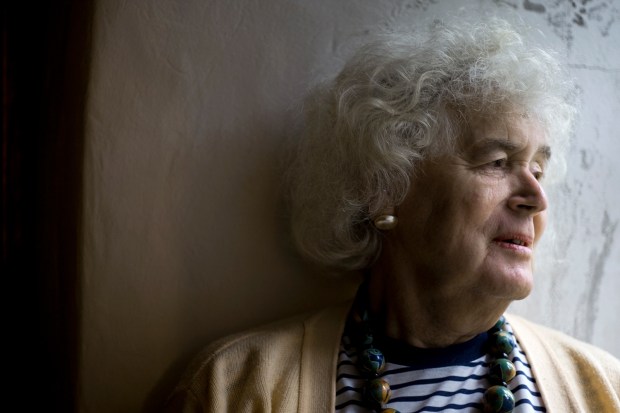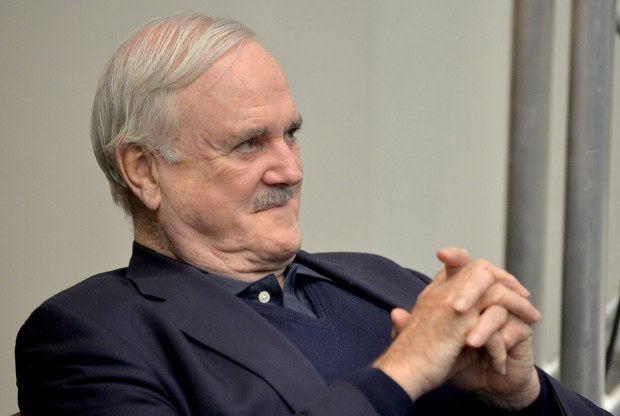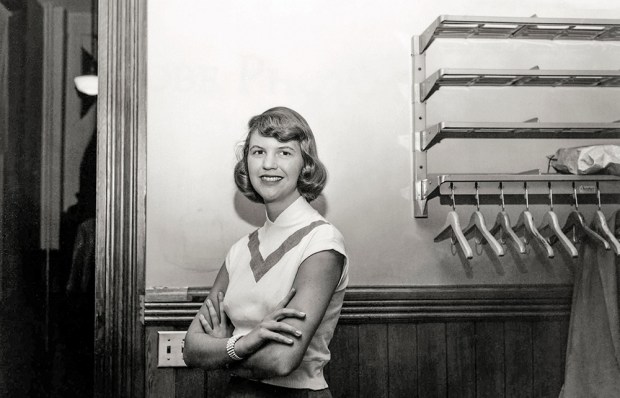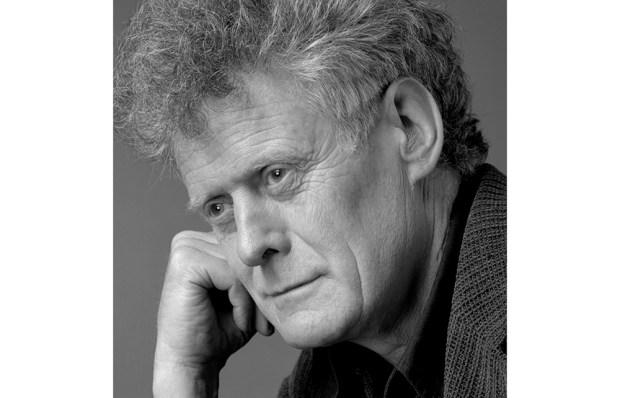The first episode of George Osborne and Ed Balls’s new podcast, Political Currency, opened with an old clip of the pair arguing across the despatch box. Osborne had described his latest Budget as ‘steady as she goes’ and Balls was having none of it. ‘What kind of ship does he think he’s on, the Titanic?’
If producers hoped that the duo would bring something of this, er, biting dynamic to their podcast, they were in for a surprise. The opening number saw little in the way of sparring between the former opponents. Seated in a studio in east London, they spent most of the time doing what so many in their milieu are doing at the moment, chummily sharing their views and frustrations and trying to squeeze some entertainment out of it. Their unstated mission: to knock Alastair Campbell, Rory Stewart and The Rest is Politics off the top perch.
Which is to say they played it safe. They know the formula. Two guys chat as though they’re sharing crisps in a pub while feeding us news and opinion. A few jokes, some straightforward banter, a dose of dissension and back to the discussion. So far, it’s enjoyable and informative, with a good structure and high production value. But if it’s going to go galactic and, more importantly, retain listeners, there are a few things that need to happen first.
Neither Balls nor Osborne has quite made the transition from politician to presenter. This became obvious in the first episode when they were discussing Chinese spies. Balls, clearly fascinated by the topic, offered an anecdote about a civil servant having a drinking mug bugged and discovering this only when the item fell apart in the dishwasher. Osborne, more serious, reminded us that as chancellor he’d recommended increasing the counter-espionage budget. It sounded too much like an effort to defend his record.
Having presenters who can draw on their own experience is great, but the listener longs for them to lighten up a bit and also, to be frank, to put on more of a performance. There was too little drama, too much caution. Balls’s suggestion, for example, that Prince Andrew was a valuable asset as a trade ambassador in certain parts of the world needn’t have been followed by disavowals and a clarification that they were not arguing for his return to royal duties. The pair would also do well to indulge each other’s jokes. Osborne (perhaps wisely) ignored Balls’s cheeky suggestion in the second episode that he’d visited Singapore to hunt for missing British Museum artefacts.
Still, these are early days. And who knows, it might even give The Rest is Politics a run for its money – naturally the top priority for any outgoing chancellor.
One of the goals of Political Currency is to give voters insight into what really goes on in Downing Street prior to the next election. How to Win a Campaign, a new five-part series on Radio 4, has a similar aim, though it takes us into the still murkier world of political campaigning. Strategist-turned- romantic novelist Cleo Watson, who worked on Vote Leave among other campaigns, is well placed as host.
The number of contributors to the first episode, which aired this week, was rather dizzying. One moment we were listening to Craig Oliver venting about Channel 4 News’s ‘brutal’ questioning of campaign losers, the next Ayesha Hazarika was describing the use of PMQs as a testing ground for election policies. Add some annoying background music and the conditions were ripe for bamboozlement.
The premise of the programme was nonetheless interesting. As Watson acknowledged at the start, many people despise political campaigns on the grounds that they are exercises in ‘trickery and manipulation’. This, she suggested, should be all the more reason to find out ‘how you’re being appealed to’ so that you can learn to resist. In other words, listen to the series.
The election-averse may find some of the revelations rather bland, but those coming from Momentum and Dominic Cummings provide the insight into the ‘dark arts’ that we were promised. Things should get going in the coming weeks as the conversation turns to data and air and ground wars.
Got something to add? Join the discussion and comment below.
Get 10 issues for just $10
Subscribe to The Spectator Australia today for the next 10 magazine issues, plus full online access, for just $10.
You might disagree with half of it, but you’ll enjoy reading all of it. Try your first month for free, then just $2 a week for the remainder of your first year.














Comments
Don't miss out
Join the conversation with other Spectator Australia readers. Subscribe to leave a comment.
SUBSCRIBEAlready a subscriber? Log in